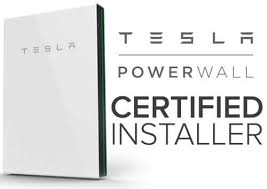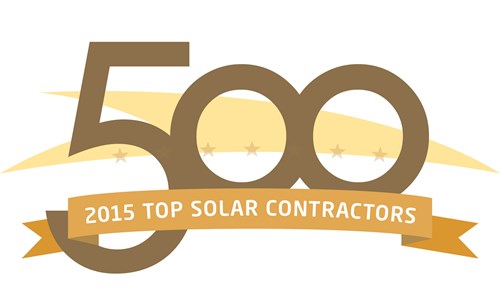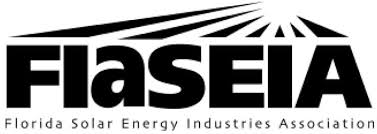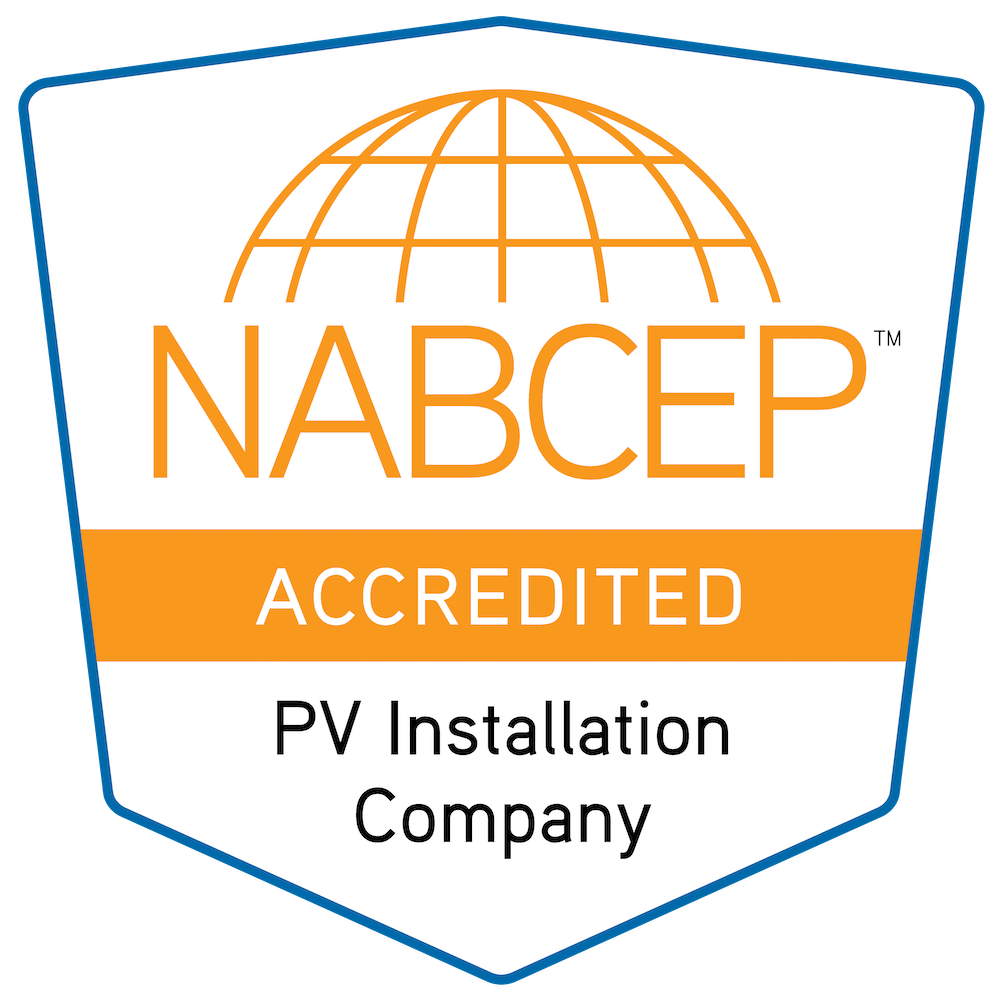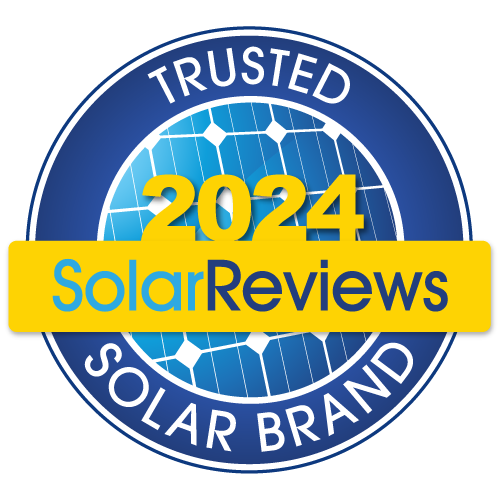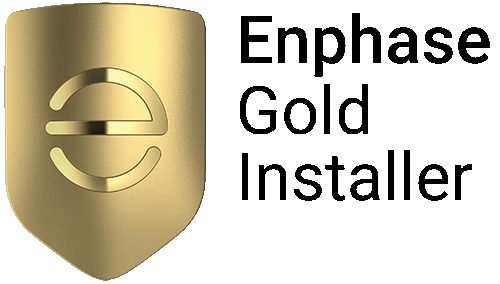Solar panel resources in Florida

A1A Solar provides resources for solar PV systems in the Sunshine State
 Hearing about the benefits of rooftop solar panels – how they help the environment and reduce electric bills – may leave you wanting more information to see if solar panels are right for you. It’s important to find reliable resources so you can make an informed decision.
Hearing about the benefits of rooftop solar panels – how they help the environment and reduce electric bills – may leave you wanting more information to see if solar panels are right for you. It’s important to find reliable resources so you can make an informed decision.
Solar panels are legal in Florida
The first question you might have when researching solar panels is whether they’re a feasible option where you live. Florida law protects property owners’ rights to employ renewable energy technologies. This law supersedes any homeowners association or deed restrictions.
According to the Florida Solar Rights Act, a homeowners association can require approval of a system installation and establish installation restrictions. The Florida Solar Rights Act also protects your rights – an association cannot prevent your solar panel installation. The restrictions have to be reasonable, applied in the same manner for all association members and must not harm the performance or inflate the cost of a solar system. A1A Solar has worked with many homeowners associations and we know what to expect.
Florida solar resources
- Florida Department of Agriculture and Consumer Services offers helpful facts on state government energy programs, projects, policies and energy-saving techniques.
- Office of Energy examines energy-related studies and stakeholder input to build a base for energy program recommendations to the governor and Florida Legislature in order to improve Florida’s energy portfolio.
- EnergySage Solar Data Explorer provides real price data from solar quotes to help you evaluate the costs and benefits of solar system installation in the state.
- Florida Energy Systems Consortium researches and develops innovative energy systems that create alternative energy strategies, better energy efficiency and higher economic development.
Consulting with solar professionals
Next, you’ll want to know the specifics of solar panels, such as the pros and cons, the cost and the installation process. Determining whether a solar system falls within your price range or budget is a crucial step. While there are special financing programs and incentives in place, there are many contributing factors that dictate the cost of solar panels and if they’re right for you. Therefore, your first order of business should be reaching out to a trusted solar contractor to discuss your options.
Solar professionals offer an assessment of your home or business as well as review your energy consumption. Their goal is to meet you and learn your wants and needs, then create a system that is to your liking and benefit. They will also provide financing options and help with loan preapprovals.
Selling your home with solar panels
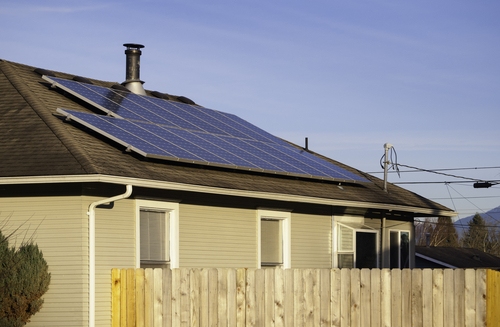
5 things to keep in mind if you’re selling your energy-efficient home
 Solar panels are a great investment for your home. They pay for themselves within five years for the average homeowner. If you’re considering purchasing solar panels, remember they’re a long-term investment.
Solar panels are a great investment for your home. They pay for themselves within five years for the average homeowner. If you’re considering purchasing solar panels, remember they’re a long-term investment.
If you’re selling your home and you have solar panels, keep these things in mind:
- Realtor
Choose a realtor who understands solar panels. Fine one that can educate prospective buyers’ agents and be proactive throughout the process. - Lease agreement
If you’re leasing your solar panels, speak with the leasing office well before you list your home so you know the lease transfer and buyout requirements. - Warranty
Along with discussing the leasing options, discuss the warranty so you can ensure your realtor is well-informed. - Negotiate
Don’t be afraid to negotiate the terms of your solar panel lease with the prospective buyer. Perhaps you pay down the lease of the loan. - Installer
Speak with your solar panel provider/installer to find out what options are available to you. Does it make sense to remove them and take them with you?
Solar panels are excellent for your electricity bill and the environment. Before listing your home, check the condition of your panels and research the best way to use them to your benefit in the sale of your home.
A1A Solar has installed Florida’s largest rooftop solar array on IKEA

Leading solar company A1A Solar Contracting has installed 5,472 solar panels on the new IKEA store in Jacksonville, making it the largest rooftop solar array in Florida.
The project provides up to 50 percent of the building’s power consumption with 1.89 MW system, making it Florida’s largest non-utility private solar array. IKEA contracts with REC Solar who will design the system.
Pete Wilking, president and founder of A1A Solar, is confident his team will successfully finish the installation ahead of schedule. To work with IKEA, A1A Solar took part in a highly competitive bid process and went through multiple interviews and a vetting process to install the system.
“REC Solar has made a smart choice in selecting A1A Solar as the solar installer for the Jacksonville IKEA project,” Wilking said.“Choosing a local company means supporting Jacksonville’s economy and keeping jobs local.”
The rooftop will operate under a power purchase agreement with the Jacksonville Electric Authority. The 1.89 MW system will produce approximately 2,753,070 kWh of electricity annually, the equivalent of reducing carbon dioxide emissions by 2,133 tons yearly. JEA will add this array to its total solar energy portfolio, bringing it to a projected 50 MW by the end of 2017.
“We are excited about furthering our sustainability commitment and contributing to a low-carbon society with solar atop our future Jacksonville store,” said Lars Petersson, IKEA U.S. president, in a written statement. “We have a mission to create a better everyday life for the many, and IKEA Jacksonville can add to this goal and keep us Florida’s largest non-utility private solar owner.”
A1A Solar, already a solar record-setter, installed the then-largest commercial solar rooftop in Jacksonville – 340 panels – for Champion brands, a local beverage distributor.
Commercial solar panel systems help business owners save on utility costs, reduce their carbon footprints, increase power independence and highlight their dedication to the environment. Keeping abreast of the growing solar industry and myriad technological advancements, A1A Solar offers custom options for solar panel systems.
Veteran-owned A1A Solar Contracting provides residential and commercial solar electric photovoltaic design and system installations for homes, businesses and governmental agencies in Florida and Georgia. The North American Board of Certified Energy Practitioners has certified four of A1A Solar’s employees. Learn more about solar options at www.a1asolar.com.
What’s the deal with solar roof tiles?
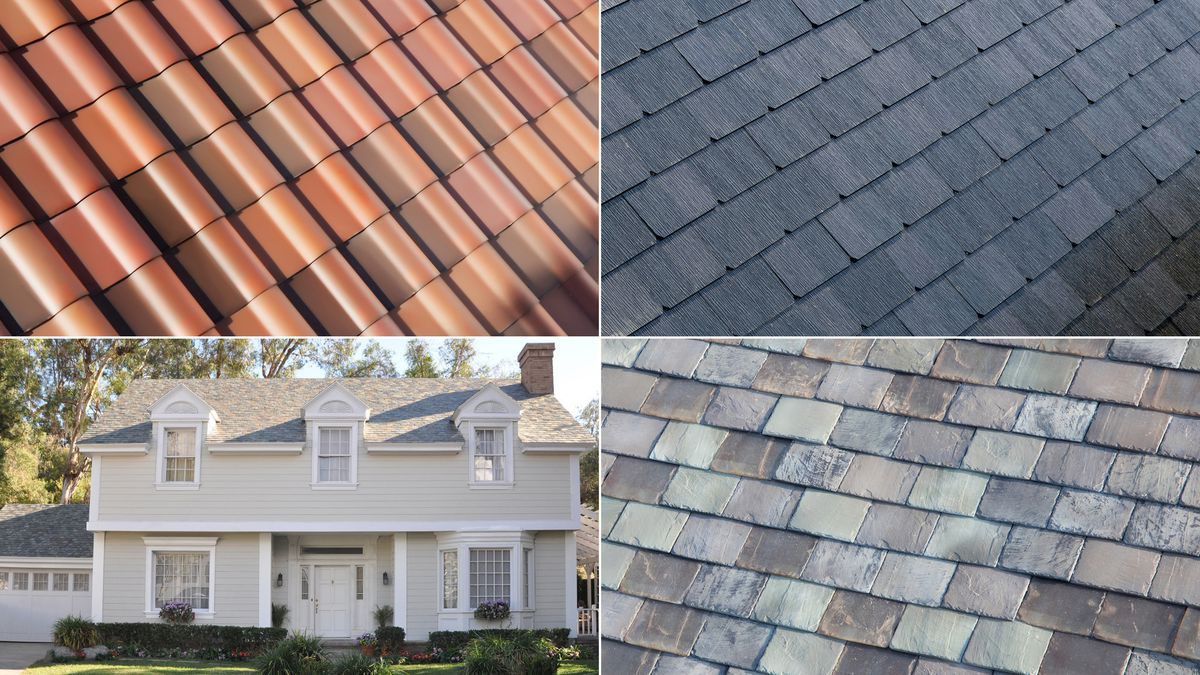
A1A Solar gives you the facts about solar energy
 Information about solar roof tiles is all over the news and social media lately. You may be wondering what all the fuss is about and what’s really going on with this technology.
Information about solar roof tiles is all over the news and social media lately. You may be wondering what all the fuss is about and what’s really going on with this technology.
Although solar power has been around for more than 100 years, it’s only been in the last few decades that people have begun to use it on a global scale. If you’re among those who are just waking up to the benefits of rooftop solar, now is a good time to discover what’s new and how you may be able to take advantage of this important trend.
Understanding rooftop solar
Solar energy is abundant as long as the sun is shining. Researchers at Bell Laboratories created the first silicon solar cell in the 1950s to harness a significant amount of that energy. Their work was the precursor to the modern rooftop solar tiles used to produce energy for homes and businesses today.
The sun hits your roof with photons. Rooftop solar panels convert those photons into electrons of direct current. These electrons flow out of the panels into an inverter, which changes them from DC power, like that found in batteries, to AC power, which is the kind that powers your television, appliances and other devices.
How much do solar panels cost the consumer?
A rooftop solar system is an investment that will serve your home and family well into the future. However, the steep, upfront cost may make them seem prohibitive.
Purchasing a system can cost $15,000 to $20,000. The actual cost depends on the orientation of your roof and how many panels you’ll need. Since solar panels will significantly reduce your energy bill by 70 percent or more, a solar system will pay for itself in five to seven years.
Leasing your system is an option, however, there are numerous disadvantages. For example, the leasing company may control how many panels they install and where they install them. Also, if you decide to sell your home before the lease is up, buyers may not be willing to assume the payments. You are better off purchasing, so you get the tax credits and other savings.
What’s all this about the Tesla solar roof and when will it be available?
One reputed drawback of rooftop solar panels is their appearance. In other words, people think they’re unsightly and choose to forego them despite the sizeable energy savings.
Tesla, an American automaker, energy storage company and solar panel manufacturer, has created a system using a high-efficiency solar cell created by Panasonic. These cells are designed to blend into the roof because they look like regular roof tiles. They come in different styles so you can integrate them into any type of roof.
On the downside, the sticker price is pretty substantial. For the average home, the cost of the Tesla solar panels is approximately $40,000 to $60,000. Some people have already made down payments on these systems, expected for delivery in 2018.
Is rooftop solar right for you?
With energy costs rising each year, everyone should be looking to save money. Rooftop solar panels represent a clean, cost-effective way to lower your bills and to help the environment by using a renewable energy source.
Improved technology has made solar power more affordable than ever. Researchers estimate that 700,000 U.S. homes are now reaping the benefits of rooftop solar.
8 reasons commercial solar energy is good for business
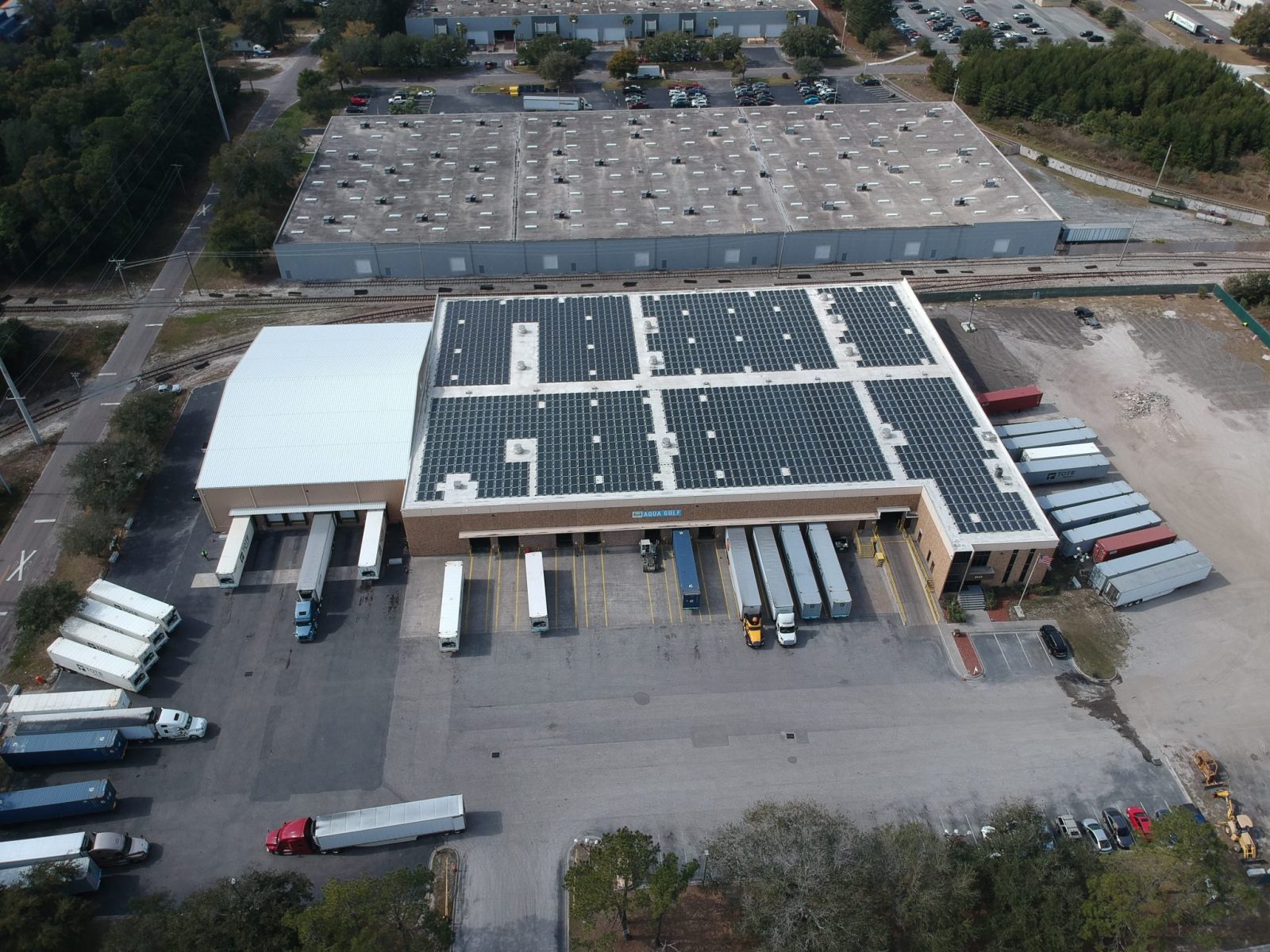
Learn the benefits of going solar
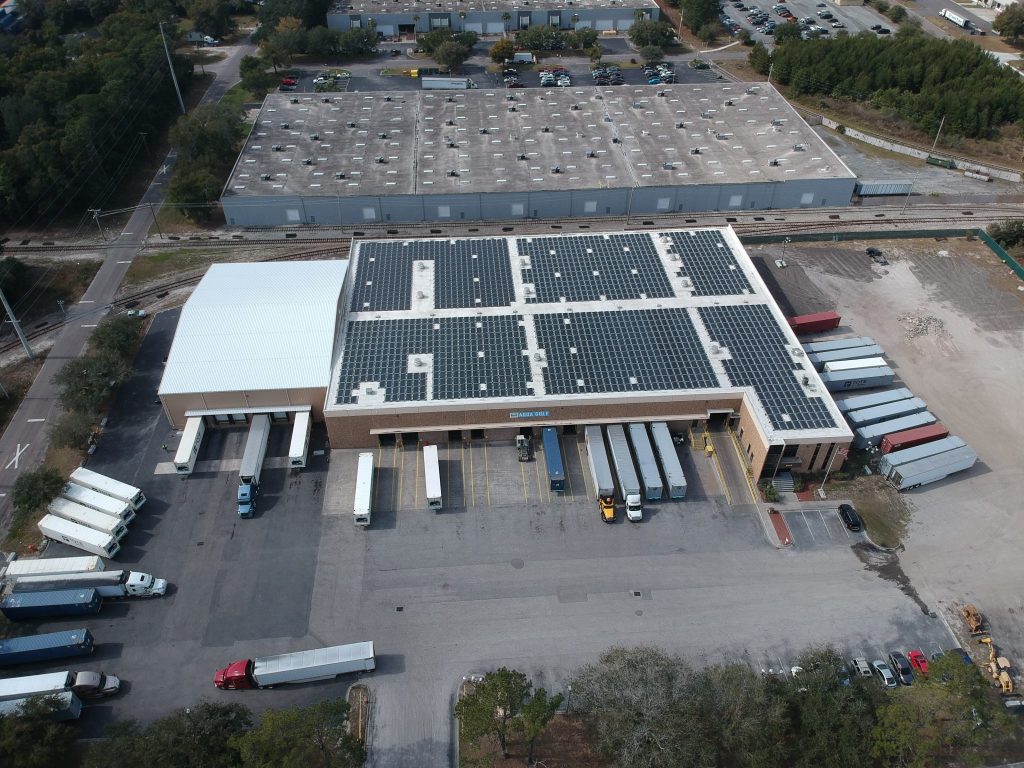
In business, you’re constantly seeking solutions. You’re solving problems for clients, employees and your organization. Did you know that rooftop solar panels on your facility could provide solutions? When considering ways to save money and operate your business more efficiently, you naturally think about factors like inventory control, business-to-debt ratios and reducing turnover. These are all issues from within. By thinking outside the box (and outside your building), you may find even bigger savings and benefits using commercial solar energy.
How can rooftop solar panels help your business?
- Reduce operating costs
Let’s face it: If an initiative isn’t going to save you money, what’s the point? Many businesses realize a 15 to 25 percent savings in after-tax returns, which equals thousands of dollars a year. According to a recent study, the average commercial property owner pays approximately $2,000 a month on electricity bills. After installing rooftop solar, that figure drops to about $500 a month. This is money you can put back into growing your business. You may even get monitoring software so you can track exactly how much energy you are generating through your rooftop solar system. - Ensure financial stability
Energy costs increase practically every year. This can wreak havoc on even the most prudent budget. The sun is free, and with solar photovoltaic panels, you will no longer be at the mercy of the energy industry. Additionally, the cost of purchasing and installing rooftop solar has gone down. - Decrease carbon footprint
Today’s customers demand that businesses be environmentally responsible, and solar panels allow you to meet that requirement. Even a small rooftop solar panel system can greatly reduce your CO2 emissions. Be sure to promote your green efforts in official literature and on social media. - Save during tax time
Photovoltaic panels are typically classified as capital improvements and might be eligible for tax credits or write-offs. This further enhances your return on investment. - Add value to your business
If you ever decide to sell your business or building, rooftop solar panels make an excellent selling point. Future buyers may appreciate the fact that the installation is already taken care of and that they will reap energy savings immediately. Some states also have performance-based incentives, a way to receive payment for the electricity your system generates. - Enjoy low-maintenance, long-lasting energy production
Once installed, rooftop solar panels require little to no maintenance. An annual cleaning is all that’s necessary to keep the panels in top shape and producing energy over their 25- to 40-year life span. - Foster employee pride
Research shows that top job prospects choose companies based on what they stand for, even more than salary. Therefore, by showing that you care about the environment, employees will be more invested in your mission and more likely to remain loyal to your brand. - Demonstrate social responsibility
Customers love businesses that give back. Solar panels are a very visible way to demonstrate your commitment to sustainability. You’ll also be supporting the local economy, as installers will likely be local.
A1A Solar helps Champion Brands GO GREEN and save $763,000 in utility costs
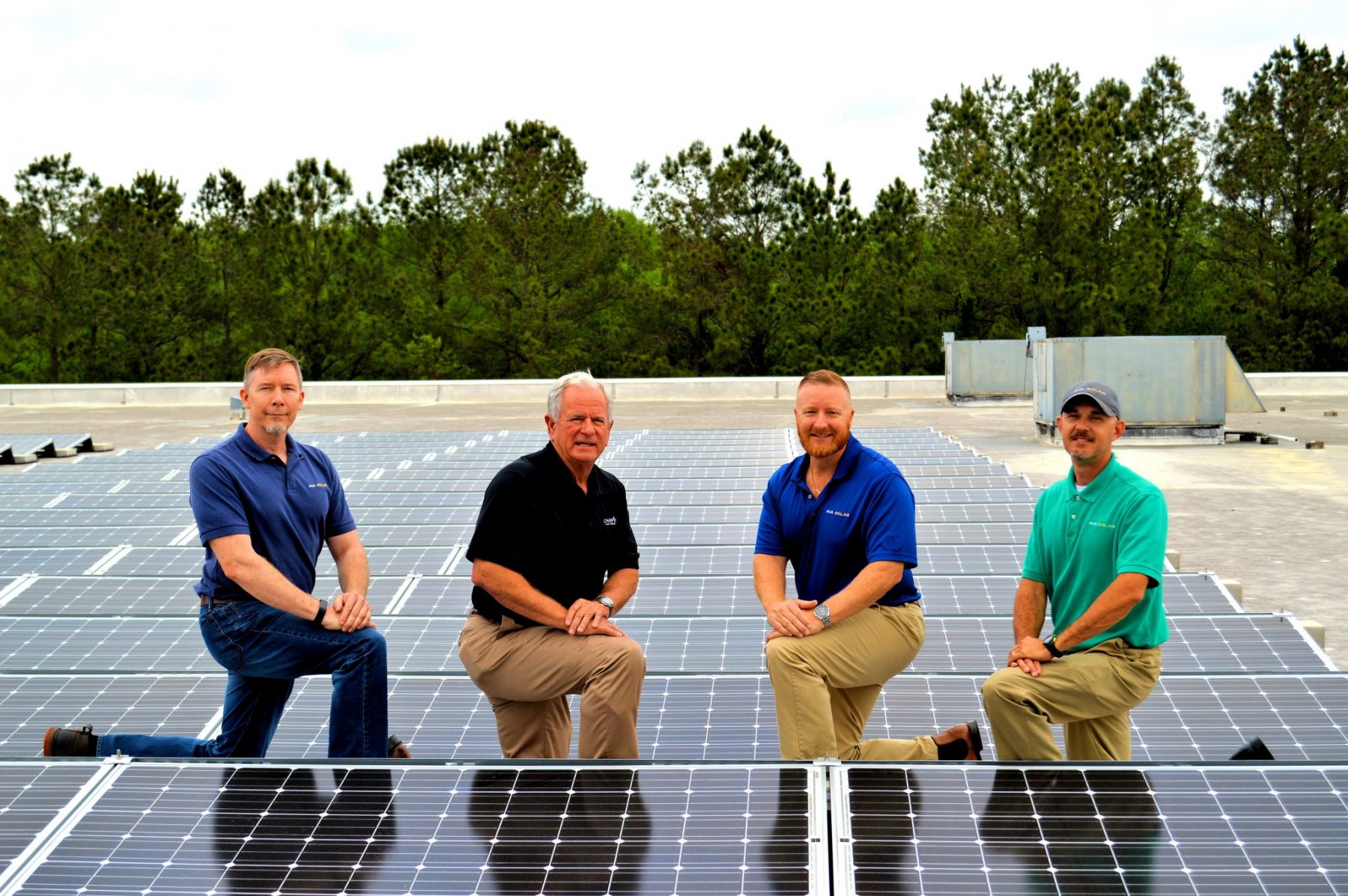
Champion Brands commissioned a large-scale custom solar photovoltaic system from A1A Solar that will save it $763,000 in utility costs over the system’s lifetime.

A1A Solar Contracting, with local offices at 10418 New Berlin Road, installed the solar panel system at Champion Brands’ headquarters facilities. Champion Brands is a premier beverage distributor serving Florida and Georgia customers and suppliers. This is one of its most recent among many environmentally friendly initiatives and investments.
The custom-made solar photovoltaic system includes 340 USA-made modules, which can produce a total of 115.8 kW, mounted onto the roof of the headquarters building. By contrast, the average solar-powered home has about 20 panels. Each of Champion Brands’ 340 solar panels have SolarEdge Inverters with Power Optimizers that increase energy output by tracking the maximum power point and reporting real-time performance.
“Practicing sustainability is one of our core values, and adding a solar panel system to our headquarters is one way to do it,” said Champion Brands CEO Earl Benton. “By reducing our carbon footprint and even our overall corporate utility cost, we can better serve our customers and give back to the communities in which we have facilities. This is something we’re looking at for our other locations as well.”
There will be an invitation-only ribbon cutting ceremony on May 30 to officially “flip the switch” at Champion Brands headquarters at 5571 Florida Mining Blvd. S. in Jacksonville.
By going solar, Champion Brands offsets its energy usage by 169,081 kilowatt-hours per year. To put that in perspective, the company has reduced its carbon dioxide emissions equivalent by 13,371 gallons of gasoline consumed per year. The environmental impact estimates are the equivalent of switching from 4,212 incandescent lights to LED bulbs.
“If 100 additional companies in greater Jacksonville area followed suit, we could reduce the ecological footprint of Jacksonville by 1,260 tons of CO2 emissions per year,” said Pete Wilking, president and founder of A1A Solar. “Champion Brands enlisted A1A Solar to assist in its corporate green initiatives and positively impact our community.”
Commercial solar panel systems help business owners save on utility costs, reduce their carbon footprints, increase power independence and highlight their dedication to the environment. Keeping abreast of the growing solar industry and myriad technological advancements, A1A Solar offers custom options for solar panel systems.
Turn on the tax savings with solar energy
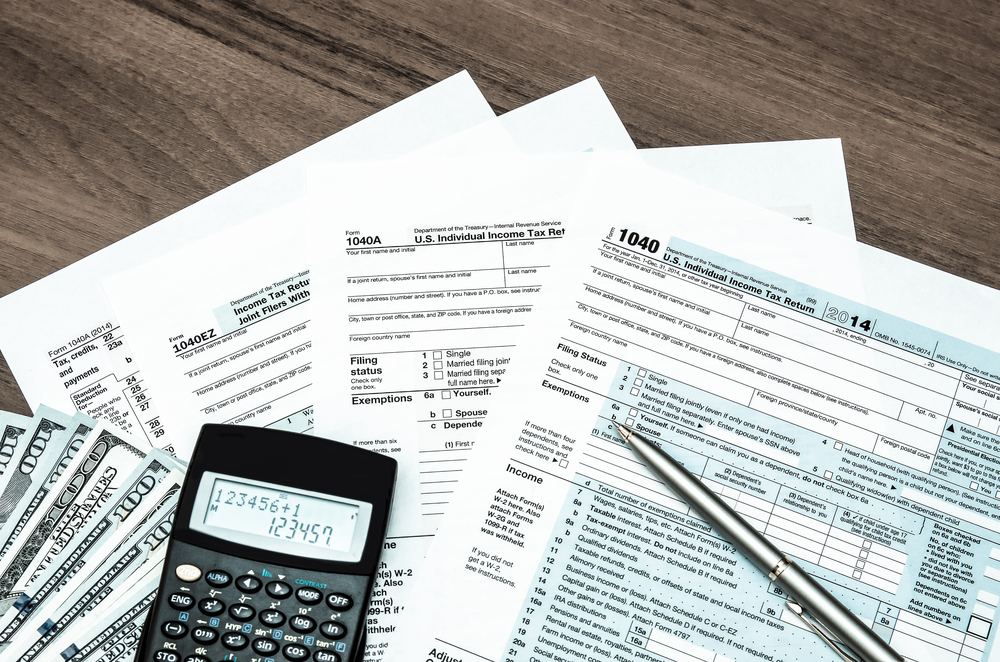
Discover how much you can save on your taxes when you install a solar system
 Installing a solar energy system helps save the environment. Did you know it also saves you money on your federal taxes? Under the Consolidated Appropriations Act, you can claim a tax credit for up to 30 percent of the cost to install a solar energy system. However, the amount you claim depends on when you installed your system.
Installing a solar energy system helps save the environment. Did you know it also saves you money on your federal taxes? Under the Consolidated Appropriations Act, you can claim a tax credit for up to 30 percent of the cost to install a solar energy system. However, the amount you claim depends on when you installed your system.
- If you install a system before Dec. 31, 2019, you’ll get a 30 percent credit.
- If you install a system between Jan. 1, 2020 and Dec. 31. 2020, you’ll get a 26 percent credit.
- If you install a system between Jan. 1, 2021 and Dec. 31, 2021, you’ll get a 22 percent credit.
Unfortunately, Florida doesn’t have a state tax credit system in place for in-home solar energy systems. However, you won’t have to pay sales tax if you get a property tax exemption on the solar energy system installed on your home or property.
If you’d like to save the most on your taxes when you install a solar energy system, it’s best to do it before Dec. 31, 2019. When you’re ready to harness solar energy for your home, call us at 904-GOT-SUN1 (468-7861), and we’ll be happy to set up a solar energy system for you.
New data on home premiums could change your mind about rooftop solar

A1A Solar provides the information you need to know

How much is your home truly worth? When you make home improvements, will you reap a fair return on your investment? If you install energy-saving rooftop solar panels, the answer is yes; they do increase your home’s value. And now, there is proof.
Researchers from the Lawrence Berkeley National Laboratory (LBNL) and other institutions have completed the most comprehensive study ever on home premiums and the true value of rooftop solar panels. The study spans more than 10 years and eight states and determined that solar photovoltaic (PV) systems progressively add value. This data is very valuable for real estate agents, appraisers and homeowners.
How researchers collected data
Limited studies in the past have suggested an increase in PV home premiums, but the information hasn’t really trickled down to make an impact on the housing market. The ability to value these homes appropriately will have a significant impact in the PV housing market nationwide.
Using data from LBNL’s Tracking the Sun report as well as real estate information and comparisons with non-rooftop solar homes, the researchers conducted the study to help fill in the gaps of understanding what all the information means for housing markets and homeowners. They studied homes in Connecticut, California, Massachusetts, Florida, Maryland, North Carolina, New York and Pennsylvania.
In the study, homeowners owned rather than leased their rooftop solar systems. The homes were less than $900,000 and researchers used methods to account for neighborhoods, models and market characteristics. You can learn more at https://www.energy.gov/eere/sunshot/sunshot-initiative.
The findings
- Homebuyers are consistently willing to pay more for homes with rooftop solar panels.
- The increase in value extends across various states and home types. This is for both newly built homes and those that were not new when rooftop solar was installed.
- Photovoltaic systems can save homeowners up to $4 per watt or approximately $15,000 for many homes.
- Homebuyers get double rewards. In addition to the energy savings achieved by solar panels, they may also receive tax credits.
- Besides helping you sell your home for more money, rooftop solar panels can also be a factor in selling your home faster.
- You can experience a possible 200 percent return on investment, which more than makes up for the cost of solar panel installation. By contrast, most kitchen remodels fetch about 60 percent return.
How the study helps homeowners
When buyers and real estate professionals better comprehend the value of rooftop solar systems, home prices will be more rational, based on data instead of conjecture. Additionally, the more people understand the effect on home premiums, the more they will be willing to invest in rooftop solar.
As an added benefit, the popularity of rooftop solar may continue to bring costs of installation down. With attractive, innovative financing options, rooftop solar systems are more affordable than ever before.
There are now more than half a million U.S. homes enjoying the benefits of rooftop solar. If you decide that it’s for you, make sure you hire someone certified and experienced for maximum benefits when buying or selling your home.
Other benefits of rooftop solar installation
Even if you never decide to sell your home, rooftop solar panels have numerous other benefits. For instance, as utility rates rise, your electricity bill savings increase. In fact, you’ll begin to see energy savings immediately, before you pay your next bill.
Also, sunshine is free and abundant. The more homeowners turn to rooftop solar, the less we rely on fossil fuels. This leads to better health, cleaner air and more green jobs.
How to clean your solar panels

 As spring arrives and flowers begin to bloom, the abundance of pollen can be a nuisance. Pollen accumulates on your solar panels, hampering their performance. Rain can wash away pollen, but if it hasn’t rained for a while, you’ll have to clean your solar panels on your own. Fortunately, it’s quite easy.
As spring arrives and flowers begin to bloom, the abundance of pollen can be a nuisance. Pollen accumulates on your solar panels, hampering their performance. Rain can wash away pollen, but if it hasn’t rained for a while, you’ll have to clean your solar panels on your own. Fortunately, it’s quite easy.
Before you begin, make sure you set up your ladder on solid ground and that it remains stable while you’re on your roof. Have someone hold the ladder for you when you’re climbing up and down. It’s important to minimize any risks of falling off your roof.
Safety is the most important part of cleaning your solar panels. If you feel that you can’t clean your solar panels on your own, contact a local professional to do it for you.
Cleaning tools
As you prepare, have these items on hand:
- A soft brush or squeegee.
- A bucket of water with soap in it.
- A hose.
Cleaning
Once you have your equipment, you’re ready to get started.
- First, rinse the solar panels with your hose at medium to high power. This is usually enough to remove dirt and pollen from the panels. If needed, have someone available to turn the hose on and off while you spray.
- If you need to do a more thorough job (for example, there are bird droppings on your panels), gently scrub the panels with a soft brush and soapy water – similar to how you clean your windshield.
Finishing
- Once you’ve washed your panels, don’t worry about drying them; the sun will do that for you.
- While you’re on your roof, it’s also a good time to check for damage and verify no fasteners are loose.
Remember: Solar panels can become very hot during the day, so try to clean them in the morning, late afternoon or on a cold day to minimize the risk of a burn.
You don’t need to clean your solar panels often, thanks to rainwaters washing them for you. But, it’s a good idea to know how to do it in case there is a shortage of rain and gunk builds up on your panels.
If you want a professional to clean your solar panels, A1A Solar can help.
How do rooftop solar panel systems work?
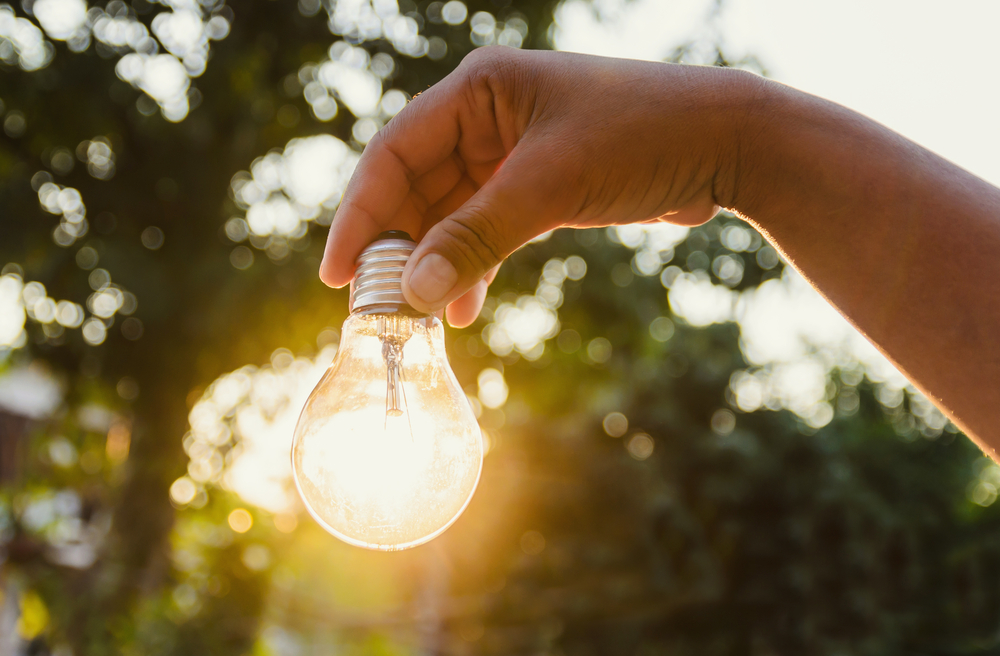
A1A Solar explains what you need to know
 Since the 1800s, physicists such as Heinrich Hertz, Alexandre-Edmond Becquerel, Max Planck and Albert Einstein have studied the effect of light and how to harness it into energy. Fast-forward to the 21st century. We are now using this same research to power homes and businesses with rooftop solar panels.
Since the 1800s, physicists such as Heinrich Hertz, Alexandre-Edmond Becquerel, Max Planck and Albert Einstein have studied the effect of light and how to harness it into energy. Fast-forward to the 21st century. We are now using this same research to power homes and businesses with rooftop solar panels.
Perhaps you’ve seen solar panels in different neighborhoods. Maybe a commercial or ad got your attention. You may be wondering how they work. More importantly, are they right for you?
The basics of rooftop solar panels
- The sun rises each day. When it does, it shines particles of light called photons.
- Photons hit the crystalline photovoltaic cells, which are part of the solar panel. These are the same kinds of cells that are in calculators and rechargeable flashlights.
- Solar panels convert those photons into electrons of direct current (DC) electricity.
- The electricity is changed from direct current energy, which is the type used in batteries, into alternating current (AC) power. This is the electricity used to power your lights, television, microwave, etc.
- A net-energy meter measures how much power your solar panel system produces. Any excess power generated that you don’t use goes back into the electrical grid that everyone uses. On days that are overcast or rainy, when you cannot draw enough energy from sunlight, you will get your electrical power from the grid. In other words, there is a seamless connection so your utility needs are always met.
- Everyone wins. You use less power from the utility company, drastically reduce your electricity bill and help the environment at the same time.
Benefits of rooftop solar panels
- Clean energy from the sun helps combat greenhouse gases and decreases our dependence on fossil fuel sources.
- Low maintenance costs and a long lifespan. Solar panels are quiet and there are no moving parts to break down. When kept clean and free from debris, you can expect your rooftop solar panels to last 15 years or longer.
- As one of the most widely used renewable energy sources, solar panels are popular and trustworthy.
- Solar panels are easily installed anywhere with no large-scale systems or power sources required. This makes them ideal for remote locations or areas where it would be difficult to run additional power lines.
- Due to higher demand, the technology and cost-savings have improved significantly.




